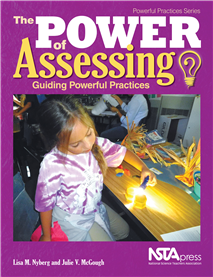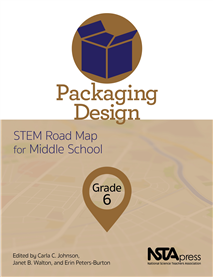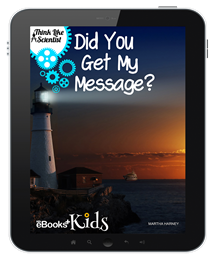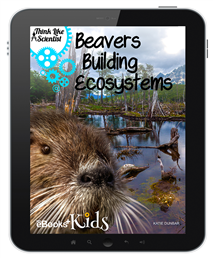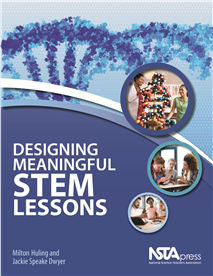All Resources
Book Chapter
The Power of Assessing: Guiding Powerful Practices (Book sample chapter)
The Power of Assessing will show you how to use authentic assessments as a dynamic teaching tool. But this book doesn’t just describe ways to evaluate your students’ learning. Through colorful photographs and over 30 minutes of video footage you ...
eBook
The Power of Assessing: Guiding Powerful Practices (e-book)
The Power of Assessing will show you how to use authentic assessments as a dynamic teaching tool. But this book doesn’t just describe ways to evaluate your students’ learning. Through colorful photographs and over 30 minutes of video footage you ...
Book Chapter
Packaging Design, Grade 6: STEM Road Map for Middle School (Book Sample)
Packaging Design outlines a journey that will steer your students toward authentic problem solving while grounding them in integrated STEM disciplines. As are the other volumes in the series, this book is designed to meet the growing need to infuse r...
Interactive E-book Kids
There are many methods for communicating. Some methods are easy to understand, while other methods require learning or decoding. As students explore communication systems, they will discover that each has benefits and drawbacks. This book focuses ...
Interactive E-book Kids
Studies have shown that wetlands created by beaver dams are more biodiverse than human-made wetlands. Beavers’ first impact on the environment begins with dam building. Using their powerful teeth and engineering instincts, they significantly alte...
Journal Article
Connecting Fossil Clubs With K–12 Teachers
FOSSILs4Teachers! is a professional development workshop that allows K–12 educators and museum paleontologists to collaborate on fossil resources and standards-aligned lesson plans about fossils. ...
By Jeanette Pirlo, Bruce J. MacFadden, Eleanor E. Gardner, Victor J. Perez, and Denise Porcello
Journal Article
Engaging Learners in Authentic Science With Environmental Data
Citizen science has long been touted as a way to engage in-school and out-of-school learners in authentic science, but the opportunities have largely been limited to collecting data. FieldScope from BSCS Science Learning is changing that by offerin...
By Daniel C. Edelson, Audrey Mohan, and Sean O'Connor
Journal Article
Connected Climate Change Learning Through Citizen Science
Educators in rural Alaska assessed and implemented effective strategies for Indigenous youth in rural Alaska to use GLOBE (Global Learning and Observations to Benefit the Environment), a K–12 classroom learning program, to study local changes in cl...
By Katie V. Spellman, Elena B. Sparrow, Malinda J. Chase, Angela Larson, and Kelly Kealy
NSTA Press Book
Designing Meaningful STEM Lessons
Sure, there are lots of cool STEM activities you can use in class. But do they really help your students learn science? This book shows you how to take lessons you’re already familiar with and, through small changes, do what the title says: Design ...
By Milton Huling, Jackie Speake Dwyer
NSTA Press Book
STEM Education Now More Than Ever
In response to “these unconventional and uncertain years,” veteran educator Rodger W. Bybee has written a book that’s as thought-provoking as it is constructive. Now more than ever, he writes, America needs reminders of both the themes that mad...
By Rodger Bybee
eBook
Designing Meaningful STEM Lessons (e-book)
Sure, there are lots of cool STEM activities you can use in class. But do they really help your students learn science? This book shows you how to take lessons you’re already familiar with and, through small changes, do what the title says: Design ...
Journal Article
The teaching of histology has changed dramatically with virtual microscopy. Fewer students of histology spend significant time viewing slides on a microscope and instead study images available in digital slide sets, generally accessible via the inter...
Journal Article
Connecting Argumentation to 5E Inquiry for Preservice Teachers
It is important to develop students’ capacities to interpret information and data to reasonable evidence and make appropriate justification to debate with peers in argumentative practice. This article introduces a series of activities progressively...
Journal Article
Integrating workplace skills in large-enrollment classrooms can be challenging, even with the support of teaching assistants (TA). Using formative feedback from both students and TAs, the instructor developed resources and modified classroom facilita...
Journal Article
Dorm Room Labs for Introductory Large-Lecture Science Classes for Nonscience Majors
Many large-lecture introductory science courses for nonscience majors do not have a lab component and hence do not provide much opportunity for students to engage in the practice of science. The author has developed a new instructional activity calle...
Journal Article
The authors evaluated student perceptions of an inquiry-based, karaoke video exercise in six university classes ranging from first year to graduate level. Students created a 3–4 minute karaoke video on a topic relevant to class. Student responses t...
Journal Article
Multiple national reports have pushed for the integration of quantitative concepts into the context of disciplinary science courses. The aim of this study was to evaluate the quantitative and statistical literacy of biology students and explore learn...
Journal Article
With only minimal changes to the course structure, classroom clickers were introduced in introductory chemistry to allow students to regularly compare their perceived abilities with their actual abilities, a measurement also known as calibration. Stu...
Journal Article
Research and Teaching: Reducing Student Resistance to Active Learning: Strategies for Instructors
In spite of considerable evidence of the effectiveness of active learning and other contemporary teaching methods, barriers to adoption of those methods, such as possible student resistance, continue to exist. This study addresses student resistance ...
Journal Article
Point of View: The Curvy Road to Student Success in Underserved Populations
This column shares reflections or thoughtful opinions on issues of broad interest to the community. This issue discusses at-risk students and grade adjustments in STEM classes....
Journal Article
Reading aloud (RA) is a learning strategy commonly used to help younger students develop language comprehension skills and in adult literacy and language courses to help students master the pronunciation of words, grammar, and intonation. The authors...
Journal Article
Case Study: The Game Changer: Keeping Your Head in Contact Sports
This column provides original articles on innovations in case study teaching, assessment of the method, as well as case studies with teaching notes. In this issue the Game Changer is an interrupted case study that traces the football career of Anthon...
Book Chapter
This chapter features Earth and Space science StEMT lessons. For this disciplinary core idea, we chose a simple lesson focused on soils and the role soils play in plant growth. The lesson starts with students being asked questions about what plants ...
Book Chapter
Introducing a New and Urgent Case for STEM Education
Doing STEM does not need to be difficult for teachers. By helping teachers understand the method for StEMTifying their existing lessons and turning them into STEM lessons, engineering becomes another tool that is helpful and beneficial for students....
Book Chapter
A New Way of Thinking About STEM
Chapters 5 and 6 are included in this book selection. Chapter 5 focuses on StEMT, our way of making sense of STEM as a process. We are not out to challenge the acronym but when you see this term, it is to guide you to a new way of thinking about STEM...



